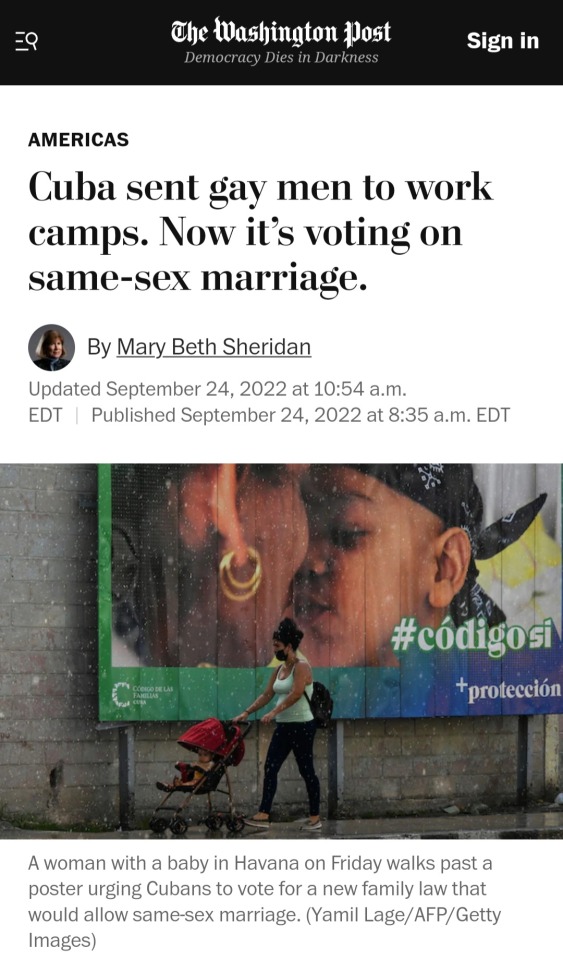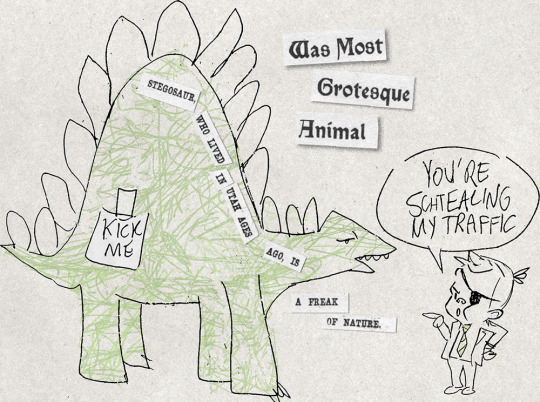#Washington Post
Text


Nicholas Galitzine for Washington Post
76 notes
·
View notes
Text
april 16, 2024
“Patients, not politicians, should make their own health-care decisions”: a Washington Post op-ed by Karlie Kloss
51 notes
·
View notes
Text

Felicity Jones, 2018
#felicity jones#washington post#actress#photoshoot#fashion#hairstyle#makeup#style#outfit#brunette#style inspo#fashion photography#portrait#portrait photography
20 notes
·
View notes
Text
Opinion Here’s how to get free Paxlovid as many times as you need it
When the public health emergency around covid-19 ended, vaccines and treatments became commercial products, meaning companies could charge for them as they do other pharmaceuticals. Paxlovid, the highly effective antiviral pill that can prevent covid from becoming severe, now has a list price of nearly $1,400 for a five-day treatment course.
Thanks to an innovative agreement between the Biden administration and the drug’s manufacturer, Pfizer, Americans can still access the medication free or at very low cost through a program called Paxcess. The problem is that too few people — including pharmacists — are aware of it.
I learned of Paxcess only after readers wrote that pharmacies were charging them hundreds of dollars — or even the full list price — to fill their Paxlovid prescription. This shouldn’t be happening. A representative from Pfizer, which runs the program, explained to me that patients on Medicare and Medicaid or who are uninsured should get free Paxlovid. They need to sign up by going to paxlovid.iassist.com or by calling 877-219-7225. “We wanted to make enrollment as easy and as quick as possible,” the representative said.
Indeed, the process is straightforward. I clicked through the web form myself, and there are only three sets of information required. Patients first enter their name, date of birth and address. They then input their prescriber’s name and address and select their insurance type.
All this should take less than five minutes and can be done at home or at the pharmacy. A physician or pharmacist can fill it out on behalf of the patient, too. Importantly, this form does not ask for medical history, proof of a positive coronavirus test, income verification, citizenship status or other potentially sensitive and time-consuming information.
But there is one key requirement people need to be aware of: Patients must have a prescription for Paxlovid to start the enrollment process. It is not possible to pre-enroll. (Though, in a sense, people on Medicare or Medicaid are already pre-enrolled.)
Once the questionnaire is complete, the website generates a voucher within seconds. People can print it or email it themselves, and then they can exchange it for a free course of Paxlovid at most pharmacies.
Pfizer’s representative tells me that more than 57,000 pharmacies are contracted to participate in this program, including major chain drugstores such as CVS and Walgreens and large retail chains such as Walmart, Kroger and Costco. For those unable to go in person, a mail-order option is available, too.
The program works a little differently for patients with commercial insurance. Some insurance plans already cover Paxlovid without a co-pay. Anyone who is told there will be a charge should sign up for Paxcess, which would further bring down their co-pay and might even cover the entire cost.
Several readers have attested that Paxcess’s process was fast and seamless. I was also glad to learn that there is basically no limit to the number of times someone could use it. A person who contracts the coronavirus three times in a year could access Paxlovid free or at low cost each time.
Unfortunately, readers informed me of one major glitch: Though the Paxcess voucher is honored when presented, some pharmacies are not offering the program proactively. As a result, many patients are still being charged high co-pays even if they could have gotten the medication at no cost.
This is incredibly frustrating. However, after interviewing multiple people involved in the process, including representatives of major pharmacy chains and Biden administration officials, I believe everyone is sincere in trying to make things right. As we saw in the early days of the coronavirus vaccine rollout, it’s hard to get a new program off the ground. Policies that look good on paper run into multiple barriers during implementation.
Those involved are actively identifying and addressing these problems. For instance, a Walgreens representative explained to me that in addition to educating pharmacists and pharmacy techs about the program, the company learned it also had to make system changes to account for a different workflow. Normally, when pharmacists process a prescription, they inform patients of the co-pay and dispense the medication. But with Paxlovid, the system needs to stop them if there is a co-pay, so they can prompt patients to sign up for Paxcess.
Here is where patients and consumers must take a proactive role. That might not feel fair; after all, if someone is ill, people expect that the system will work to help them. But that’s not our reality. While pharmacies work to fix their system glitches, patients need to be their own best advocates. That means signing up for Paxcess as soon as they receive a Paxlovid prescription and helping spread the word so that others can get the antiviral at little or no cost, too.
{source}
6K notes
·
View notes
Text

#gaza#palestine#israel#free palestine#from the river to the sea palestine will be free#free gaza#current events#free free palestine#gaza strip#jerusalem#cnn#washington post#new york times#fox news#MSNBC#npr#usa today#the economist#the hill#los angeles times
1K notes
·
View notes
Text
The young woman was catatonic, stuck at the nurses’ station — unmoving, unblinking and unknowing of where or who she was.
Her name was April Burrell.
Before she became a patient, April had been an outgoing, straight-A student majoring in accounting at the University of Maryland Eastern Shore. But after a traumatic event when she was 21, April suddenly developed psychosis and became lost in a constant state of visual and auditory hallucinations. The former high school valedictorian could no longer communicate, bathe or take care of herself.
April was diagnosed with a severe form of schizophrenia, an often devastating mental illness that affects approximately 1 percent of the global population and can drastically impair how patients behave and perceive reality.
“She was the first person I ever saw as a patient,” said Sander Markx, director of precision psychiatry at Columbia University, who was still a medical student in 2000 when he first encountered April. “She is, to this day, the sickest patient I’ve ever seen.”
It would be nearly two decades before their paths crossed again. But in 2018, another chance encounter led to several medical discoveries reminiscent of a scene from “Awakenings,” the famous book and movie inspired by the awakening of catatonic patients treated by the late neurologist and writer Oliver Sacks.
Markx and his colleagues discovered that although April’s illness was clinically indistinguishable from schizophrenia, she also had lupus, an underlying and treatable autoimmune condition that was attacking her brain.
After months of targeted treatments — and more than two decades trapped in her mind — April woke up.
The awakening of April — and the successful treatment of other peoplewith similar conditions — now stand to transform care for some of psychiatry’s sickest patients, many of whom are languishing in mental institutions.
Researchers working with the New York state mental health-care system have identified about 200 patients with autoimmune diseases, some institutionalized for years, who may be helped by the discovery.
And scientists around the world, including Germany and Britain, are conducting similar research, finding that underlying autoimmune and inflammatory processes may be more common in patients with a variety of psychiatric syndromes than previously believed.
Although the current research probably will help only a small subset of patients,the impact of the work is already beginning to reshape the practice of psychiatry and the way many cases of mental illness are diagnosed and treated.
“These are the forgotten souls,” said Markx. “We’re not just improving the lives of these people, but we’re bringing them back from a place that I didn’t think they could come back from.”
– A catatonic woman awakened after 20 years. Her story may change psychiatry.
#block JavaScript in site settings if article is paywalled#April burrel#disability#schizophrenia#lupus#mental illness#catatonia#chronic illness#institutionalization#psychiatry#medical science#healthcare#autoimmune disease#Washington post#knee of huss
3K notes
·
View notes
Text

hey uhhh. why the FUCK would you write the headline like that? like in 2015 you didn't see headlines like "the US sent gay people to conversion camps and had them lobotomized, now its Supreme Court is legalizing same-sex marriage." Cuba is on the verge of doing something amazing, meanwhile the US is facing a wave of homophobia and transphobia and a group of unelected judges can just decide to take the country back decades to the time of sodomy laws. then again, i'm not surprised that the Washington Post would write an article about a socialist country in the global south like this 🙄
#cuba#cuba referendum#washington post#socialism#same sex marriage#also i don't mind them discussing that stuff in the article itself. like it shows how far cuba has come#but why would you put it in the headline when yoh wouldn't write about the US or a european country like that?
12K notes
·
View notes
Text

7K notes
·
View notes
Text

fucking finally.
1K notes
·
View notes
Text


Nicholas Galitzine for Washington Post - April 2024
34 notes
·
View notes
Text

The Washington Post, June 23, 1912
via @yesterdaysprint

This single post is the most popular thing I've ever posted on tumblr (except a medieval illustration of a cat carrying a penis in its mouth that Tumblr deleted)

I never have to post anything new, this is all the people want now.
#ya burnt!#dinosaur#stegosaurus#freak of nature#1912#harsh#paleontology#old newspaper#washington post
3K notes
·
View notes
Text

https://www.washingtonpost.com/photography/2023/06/26/trans-visibility-photos/
#surreal#like democracy I also die in darkness#quinn hills#quinnhills#redacted hills#redactedhills#quinn#washington post
528 notes
·
View notes
Text

#Poc#blm#free palestine#news#israel#gaza#journalism#woc#politics#washington post#twitter#united nations
220 notes
·
View notes
Text
Funny how mainstream media tells the World President Trump cannot win, when, he is, in fact, winning.
Trump wins.
Americans win.
#CNN#MSNBC#washington post#new york times#mainstream media#trump#president trump#trump 2024#ivanka#repost#america first#americans first#america#donald trump
88 notes
·
View notes
Text
In an editorial published last week titled, “If Attitudes Don’t Shift, A Political Dating Mismatch Will Threaten Marriage,” The Washington Post’s editorial board points out that political polarization in this country has reached the point where it is now a prominent, often decisive factor in determining who Americans settle on as their potential mates. They emphasize this trend is now so acute it may actually threaten the institution of marriage as a whole. In particular, it seems that Democratic women are rejecting potential Republican suitors not only for marriage but as relationship material, all across the board. The message the editorial conveys—perhaps hyperbolically, perhaps not—is that as a consequence of this shift in attitudes, marriage itself in this country is in jeopardy.
Presumably the Post’s editorial board has a good reason for alerting us to this phenomenon. But what it doesn’t bother to do is tell us “why” it is occurring, and if what the editorial portends is true, Americans would be well served by knowing “why.” Had the Post bothered to provide some basic context, explaining that young American women, in particular, are loath to date right-wing (presumably Republican) men because they find some specific views, attitudes, and values they represent to be abhorrent, the editorial might live up to the serious social ramifications it implicates.
104 notes
·
View notes
Text
Help! Is my friend going to be all pissy that I lost his cat?
Miss Manners, Washington Post, 28 November 2022:
Dear Miss Manners: A friend of mine is staying with me, and he went home for Thanksgiving, leaving his cat here. Well, I woke up the first morning after he left, and the cat is gone.
It is common for us to leave the doors open during the day, but the cat has never run off until now. So what do I do? Do I call my friend and tell him over the phone? Or do I wait till he gets back, hoping the cat will return in the meantime? But if the cat doesn’t return, will he be hurt that I didn’t inform him right away?
What a shock it must have been to discover that leaving the doors of your house wide open resulted in a cat vacating the premises! Such a bizarre, once-in-a-lifetime occurrence could never have been predicted! Consider reaching out to Ripley's to see if they are interested in this surreal and freakish incident.
But to the heart of your question: it's difficult to say whether any given person would give a single solitary fuck if their pet fell off the face of the earth. Everyone is so different! Sure, a few folks might want to know that their beloved companion has been lost, but the vast majority are probably just going to be like, meh, win some, literally lose some -- hence your harrowing conundrum about whether this man deserves to know whether his cat is safe in the care of the person entrusted with such! A handful of people would want to know about and participate in the search for a lost pet, but a lot of people probably forget they even have a cat once it leaves their direct line of sight! It's entirely possible, even more likely, that your friend is just this kind of person!
And yet, what if there is the tiny, minuscule, almost unfathomable chance that your friend cares whether his cat lives or dies? It's already truly bizarre that this feline hit the bricks after finding every available escape route labeled with a neon sign saying "take me," so it's hard to imagine the universe handing you something as doubly strange as your friend giving the barest shit about his errant pet.
The best course of action is to keep everything to yourself, forever, to avoid having one awkward conversation. On the off chance your friend expresses concern about his cat's whereabouts, simply place his belongings on the curb. Act as if you have never met him and never heard of his cat. Problem solved.
1K notes
·
View notes